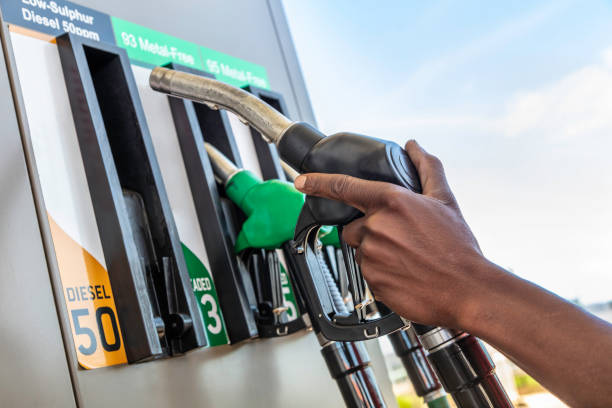As the new year approaches, South African motorists and businesses are preparing for yet another increase in fuel prices.
The Department of Mineral Resources and Energy has announced adjustments that will take effect on January 1, 2025, driven by global market trends and currency fluctuations.
Price Changes by Fuel Type
The official adjustments are as follows:
- Petrol 93: Increase of 19 cents per litre
- Petrol 95: Increase of 12 cents per litre
- Diesel 0.05%: Increase of 7.5 cents per litre
- Diesel 0.005%: Increase of 10.5 cents per litre
- Illuminating Paraffin: Decrease of 9.5 cents per litre
- LPGAS: Increase of 13 cents per kilogram
These price hikes are attributed to rising international petroleum product prices and a weaker rand against the US dollar during the review period.
Impact on Consumers
The new retail prices will reflect as follows:
Inland Prices:
- Petrol 93: R21.34 per litre
- Petrol 95: R21.59 per litre
- Diesel 0.05%: R19.29 per litre (wholesale)
- Diesel 0.005%: R19.44 per litre (wholesale)
- Illuminating Paraffin: R13.26 per litre
- LPGAS: R38.03 per kilogram
Coastal Prices:
- Petrol 93: R20.55 per litre
- Petrol 95: R20.80 per litre
- Diesel 0.05%: R18.50 per litre (wholesale)
- Diesel 0.005%: R18.68 per litre (wholesale)
- Illuminating Paraffin: R12.26 per litre
- LPGAS: R35.33 per kilogram
Factors Behind the Hike
The increase follows global trends where international oil prices have been climbing due to geopolitical tensions and production constraints in major oil-exporting countries. Additionally, the depreciation of the rand has compounded the situation, making imported fuel more expensive.
For South Africa, where fuel is a critical input for transport, agriculture, and manufacturing, these adjustments are expected to ripple across the economy. Many industries are already grappling with rising operational costs, and the latest increases may lead to higher prices for goods and services.
Consumer Reactions
“This is going to hit our pockets hard,” said Teboho Mokwena, a Johannesburg-based commuter. “Everything depends on fuel, from food prices to public transport costs. This increase couldn’t come at a worse time.”
Small business owners, particularly in logistics and agriculture, are also expressing concern. “Diesel is the backbone of our operations,” noted Thandeka Dlamini, who runs a transport company. “Even a small increase in diesel prices adds up to significant costs.”
Government Response
The government has emphasized that these adjustments are largely beyond its control, as they are influenced by international factors. However, some advocacy groups are calling for interventions such as subsidies or tax relief to cushion the impact on consumers.
Looking Ahead
The January increase marks the second consecutive month of fuel price hikes in South Africa. With the economy already under pressure, the rising cost of fuel could add to inflationary pressures, further straining household budgets.
Motorists and businesses are being urged to explore ways to optimize fuel efficiency and reduce consumption where possible.
Conclusion
As South Africans prepare to face higher fuel prices in the new year, the ripple effects on the economy and daily life remain to be seen. Policymakers and industry leaders will need to find innovative solutions to mitigate the impact and ensure economic stability.
Also Read
Dominion Energy Inc. Surpasses Competitors with Impressive Stock Growth
5 Logistics Stocks to Watch in 2025: Opportunities and Growth Potential

